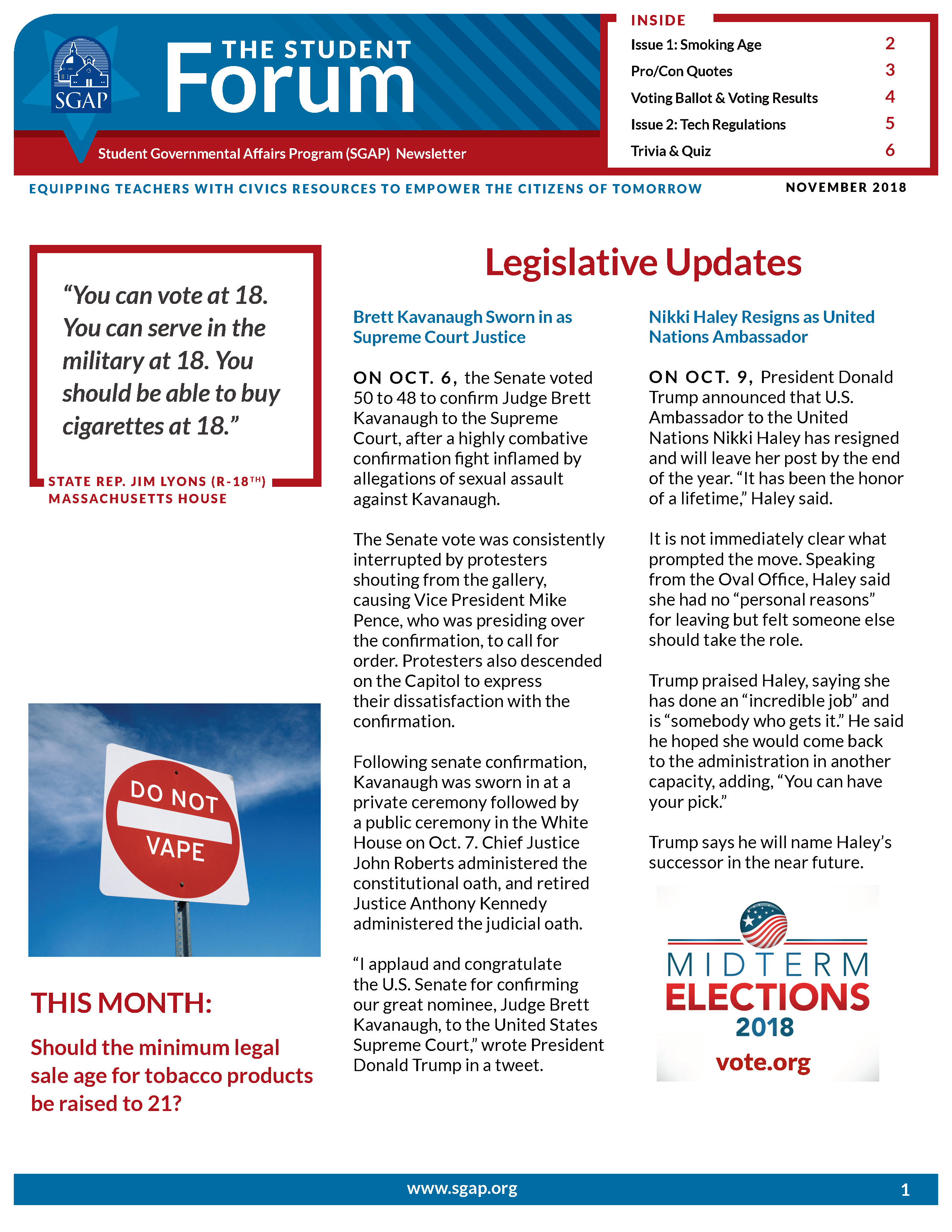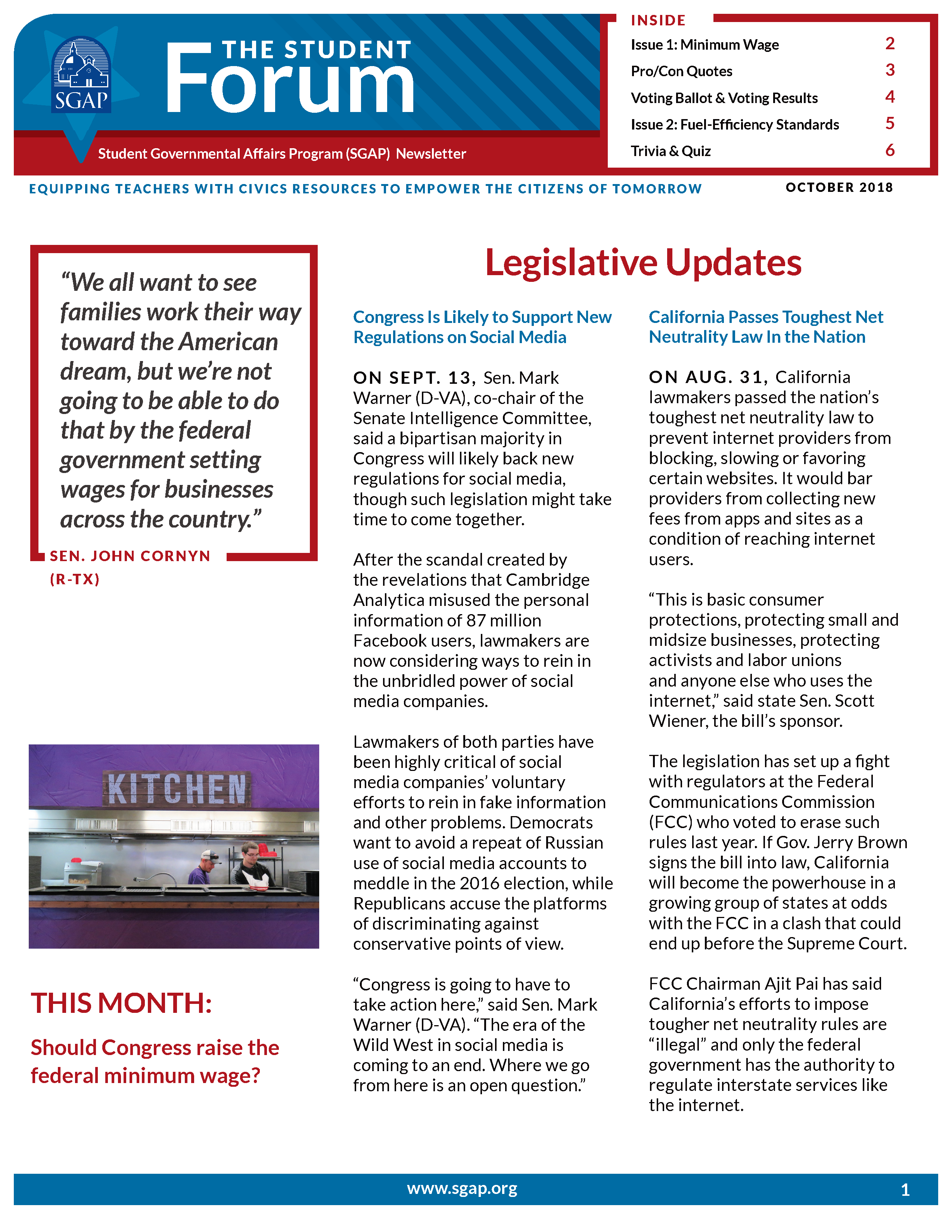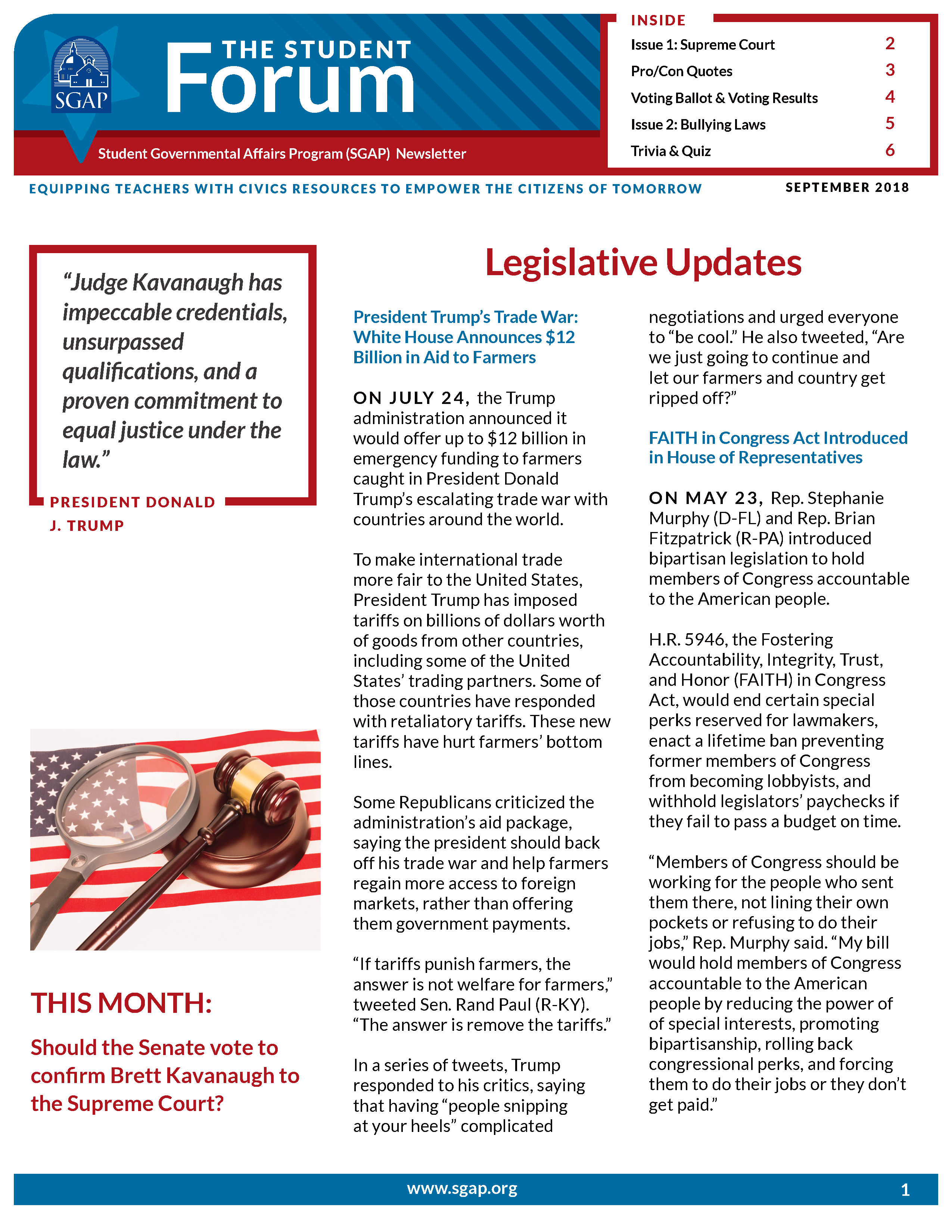RESEARCH LINKS
Issue 1: Birthright Citizenship
Rep. Steve King: “Ending Birthright Citizenship Does Not Require an Amendment”
The Federalist: Trump Sends Birthright Citizenship Trial Balloon
Politico: “Can Trump Revoke Birthright Citizenship? Nearly All Say No”
National Review: “Birthright Citizenship – A Nutty Policy We’re Probably Stuck With”
The News & Observer OpEd: “Executive Order Clarifying the 14th Amendment”
CNN OpEd: “Revoking Birthright Citizenship Is Un-American”
Issue 2: Balanced Budgdet Amendment
Investopedia: What Is a Balanced Budget?
Peter G. Peterson Foundation: Balanced Budget Amendment Pros and Cons
Motley Fool: Advantages and Disadvantages of a Balanced Budget
Balanced Politics: Yes/No Arguments on Balanced Budget Amendment
Center on Budget and Policy Priorities: “Balanced Budget Amendment Poses Risks”
Center for American rogress: “Reflections on the Congressional Budget Act”
CRITICAL-THINKING QUESTIONS
Issue 1: Birthright Citizenship
What is your interpretation of the 14th Amendment? Does its language grant citizenship to those born in the U.S. whose parents are undocumented? Why or why not?
Do you agree with Rep. Steve King’s interpretation of the citizenship clause of the 14th Amendment to the U.S. Constitution? Why or why not?
Do you believe the citizenship clause of the 14th Amendment ensures citizenship for the children of illegal immigrants? Why or why not?
Do you think that ending birthright citizenship would resolve our immigration challenges? Why or why not?
What qualities do you think should define whether or not someone is a U.S. citizen?
Issue 2: Balanced Budgdet Amendment
1. Do you think a balanced budget amendment is necessary in order for Congress to not spend more than it receives in revenue? Why or why not?
2. What impact would a balanced budget amendment have on fiscal policy during a recession?
3. Are you in favor of a balanced budget amendment? Explain why or why not.
4. How would a balanced budget amendment affect the balance of power between the President and Congress? Between the federal courts and Congress?
5. Should entitlement programs like Medicare, Medicaid, and Social Security be cut in order to reduce the national debt? Why or why not?






